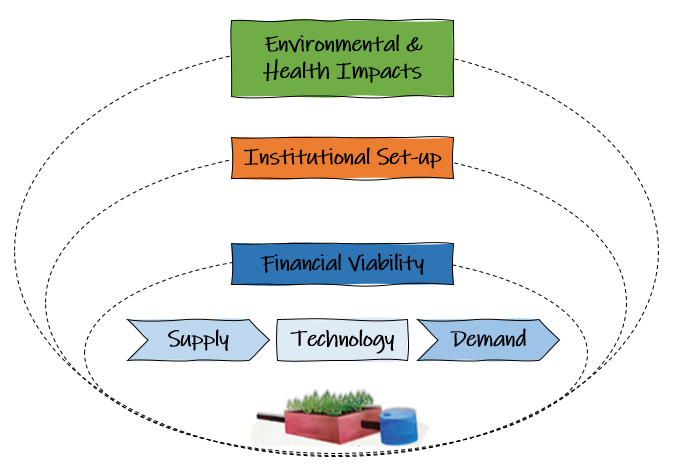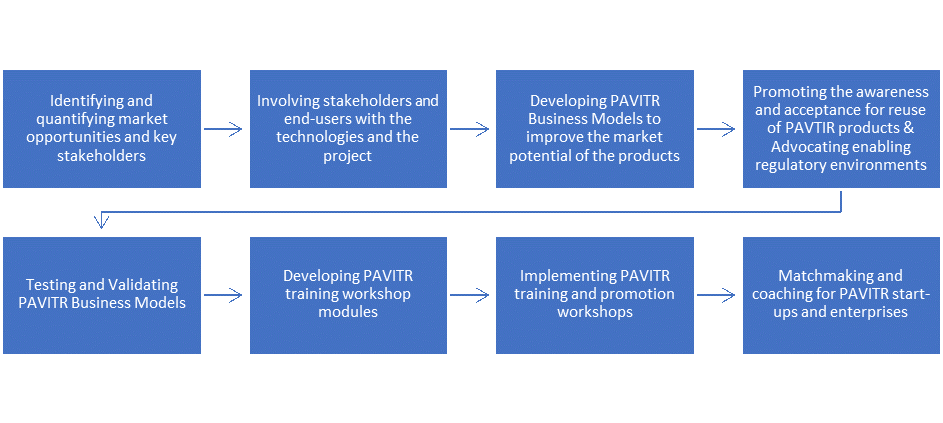India is facing a water and sanitation crisis that might hinder the economic development of the nation, being water scarcity and pollution one of the most severe national-wide environmental problems. Traditionally, the water and sanitation sector in the country has been owned and operated by the government, however not being able to solve all the problems on its own, the government is encouraging the private sector to participate in this complex process through partnership programs and regulatory reforms. This opens a wide range of opportunities for business in the different areas of water management and sanitation. Thus, besides the scientific aspects described above, the project considers the effective dissemination and knowledge transfer, the implication of SMEs and the take-up in practice in order to develop a PAVITR market and PAVITR service providers, and to ensure a beneficial economic impact to the sector as well as the creation of an enabling institutional framework. The holistic approach of PAVITR will minimize the urban water footprint and reduces the pollution of ecosystems and water sources for downstream users, as minimal amounts of freshwater will get polluted and polluted water will be treated and reused locally.

PAVITR is a holistic approach more than it is a set of innovative technologies. Besides adapting and implementing technologies, research will therefore also cover the financial, environmental and institutional sustainability of those systems in order to develop and bring a cost-efficient multi-barrier water management approach to the market. PAVITR hence aims at building up revenue models that can be sufficiently attractive for bigger founding institutions to reach and implement in the near future in India (e.g., integral water management at regional scale). The project thus includes activities designed to create a “Road to Market” for PAVITR solutions.
The project develops and implements innovative business models to deal with the complexity of the different products and services involved with the PAVITR approach. PAVITR aims at transforming waste streams into revenue streams and lays thus the ground for a wide and fast market uptake of PAVITR systems and products by implementing targeted and innovative “Reuse” business plans. Examples are the promotion of the reuse of treated wastewater in agriculture or the save recovery of nutrients from faecal sludge through the production of bio-fertilizers. The project aims at creating a level playing field for European and Indian Industries and SMEs working in the water sector, paving the way for a potential joint venture for a broad uptake of PAVITR solutions across India. To achieve this, PAVITR supports and empowers Indian entrepreneurs in their endeavour to establish and successfully run their own PAVITR start-ups, as well as to support existing SMEs in the water and sanitation sector to expand their portfolio including sustainable and adapted products and services.

The PAVITR approach to facilitating market uptake is derived from earlier efforts to promote Resource Recovery and safe Reuse (RRR) such as the International Water Management Institute’s research on RRR Business Models and the results and lessons learned from one of PAVITR’s predecessor NaWaTech. It broadly follows the following steps:

